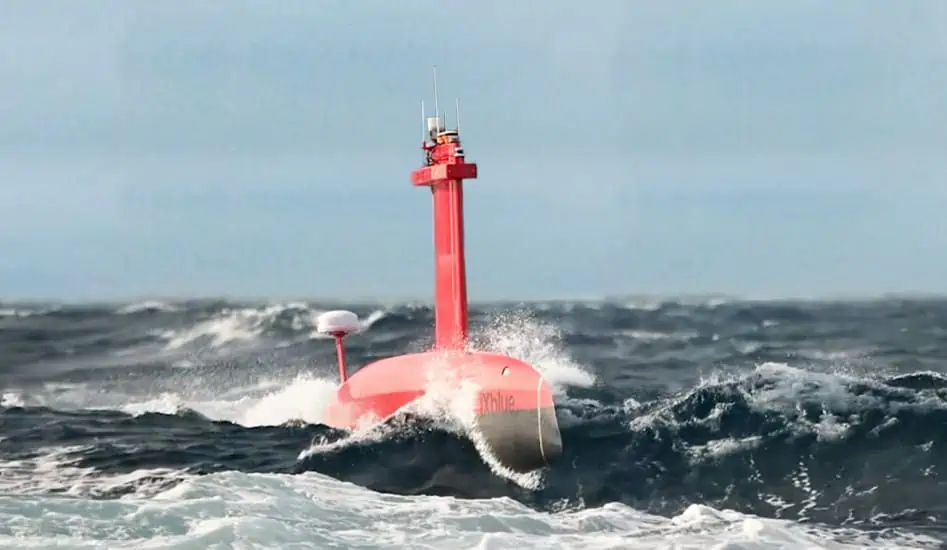
iXblue has confirmed that it has delivered a DriX USV (uncrewed surface vessel), along with a Universal Deployment System, to the University of New Hampshire’s Center for Coastal and Ocean Mapping (UNH CCOM), which is a member of the NOAA Ocean Exploration Cooperative Institute (OECI). The autonomous vessel will help expand the footprint and efficiency of the OECI’s ocean exploration operations.
The DriX USV and its novel Universal Deployment System have already successfully completed sea acceptance trials and extensive personnel training, as well as integration and a first shakedown cruise onboard Ocean Exploration Trust’s E/V Nautilus.
Selected by OECI for its mission endurance, ability to operate at high-speed, and excellent offshore seakeeping ability, DriX will support NOAA Ocean Exploration’s mission by providing mapping and characterization capabilities and supporting other autonomous vehicles that are independent of the activities of the mothership, greatly expanding the efficiency and effectiveness of ocean exploration operations. The research being conducted with DriX will serve to inform NOAA on the potential use of autonomous systems in support of the broad NOAA mission.
Larry Mayer, Director of UNH CCOM, commented: “We are delighted to embark on this exciting endeavor, working collaboratively with our partners to develop and enhance autonomous technologies that will expand the limits of our capabilities and bring new efficiencies to our efforts to explore and characterize the vast unknown areas of our oceans.”
Jeremy Weirich, NOAA’s Ocean Exploration Director, said: “NOAA Ocean Exploration is pleased to see the operations of this new DriX technology successfully integrated with Exploration Vehicle Nautilus. Being able to operate DriX over the horizon and away from a ship will increase the rate at which we can explore the U.S. Exclusive Economic Zone in support of the National Strategy for Ocean Mapping, Exploration, and Characterization.”
Dr. Adam Soule, Executive Director of OECI, stated: “We are thrilled to add DriX to the OECI collection of vehicles. It is critical to our vision of expanding the footprint of ocean exploration by collecting valuable ocean exploration data independently and simultaneously with a research vessel and at the same time providing communications and support for submerged assets. This is a linchpin for the future of ocean exploration.”










